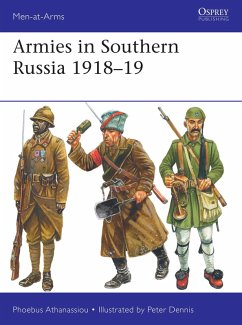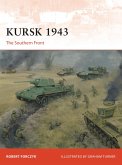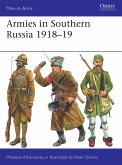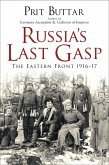An important aspect of the Russian Civil War were the several Allied expeditions immediately following World War I in support of the disunited Russian 'White' armies resisting the Bolshevik Revolution. Although they ended in failure, these ventures were long resented, and were the origin of the 70-year-long Soviet suspicion of the Western Allies. British and US expeditionary forces operated in North Russia and Siberia in support of General Yudenich and Admiral Kolchak respectively, and a French and Greek expeditionary force (plus Romanian and Polish elements) operated in Crimea and south-western Ukraine, in support of General Denikin. The situation was further complicated by the presence of strong Imperial German elements still under arms, and by war between various factions in the Ukraine. This Southern theatre of the Allied interventions is far less well known than that of the British and Americans in the North and East.
Featuring rare photos and new colour plates, this fascinating new book describes this major Allied intervention in the Russian Civil War. Dr Phoebus Athanassiou writes a compelling account of how the French and Greeks alongside White Russians were greatly outnumbered by pro-Bolshevik forces and were relentlessly pushed back by the Ukrainian forces. In just over 4 months, on 28 April 1919, the last of their forces were evacuated by Allied navies from Sevastopol in Crimea.
Featuring rare photos and new colour plates, this fascinating new book describes this major Allied intervention in the Russian Civil War. Dr Phoebus Athanassiou writes a compelling account of how the French and Greeks alongside White Russians were greatly outnumbered by pro-Bolshevik forces and were relentlessly pushed back by the Ukrainian forces. In just over 4 months, on 28 April 1919, the last of their forces were evacuated by Allied navies from Sevastopol in Crimea.









